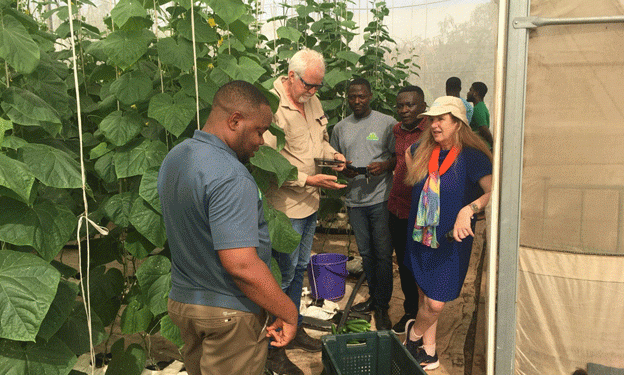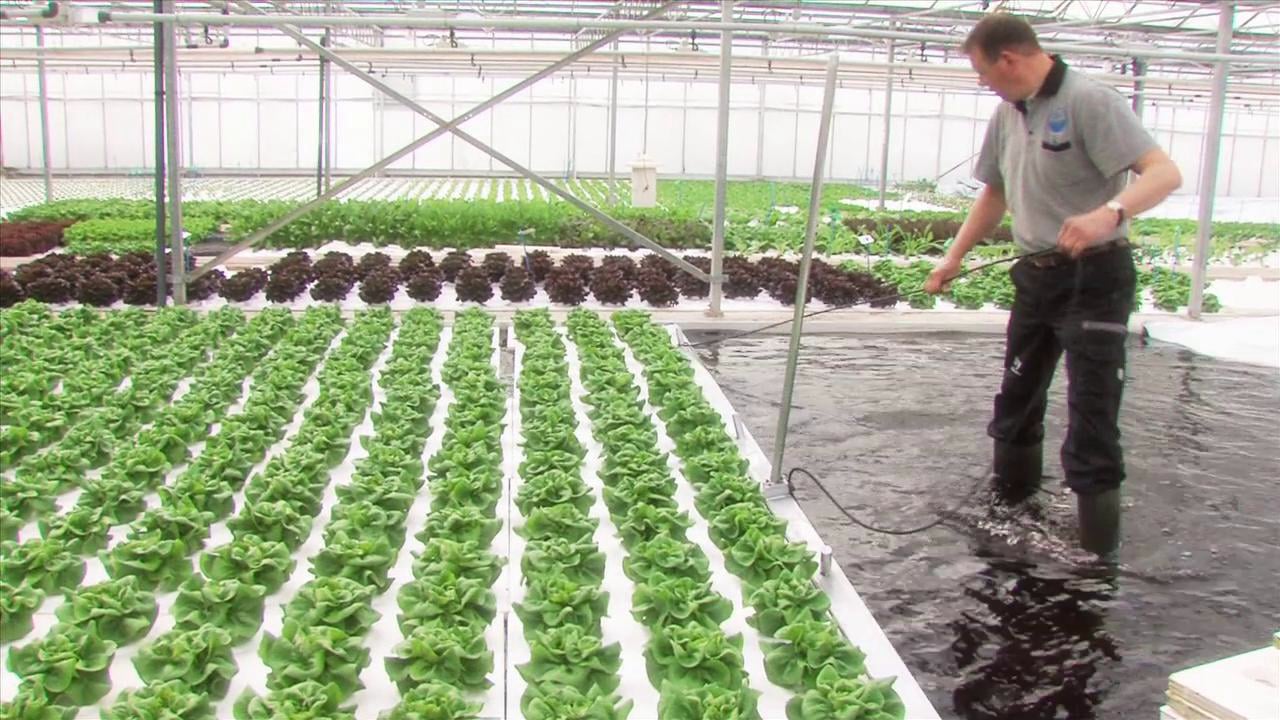As Africa faces rising demand for high-quality vegetables and more resilient food systems, the role of greenhouse farming is becoming increasingly critical. In Ghana, Fresh Logistics Limited (FLL) is leading this transformation through a strategic partnership with Demeter Ghana Limited, one of the country’s foremost agro-input suppliers.
A recent field visit to Fresh Logistics’ Dawhenya greenhouse facility marked a significant milestone in this collaboration. The Demeter team, led by Mr. Ben Adevu, Agronomist and Assistant Trainer at Agri-Top, assessed the performance of Demeter’s fertilizers on vegetable crops and provided actionable insights to enhance productivity and optimize input use. The visit also offered a platform for reviewing new crop trials and technologies that support sustainable, high-yield production systems.
Fresh Logistics: A Model of Modern Greenhouse Farming
Fresh Logistics, a subsidiary of Agri-Impact Group, operates a robust greenhouse network across Ghana. Its farms supply graded, quality-controlled vegetables to prominent retail and distribution partners, including ShopRite, Eden Tree, JOFOEL, Vegetable Direct, and a wide range of corner shops and urban retailers.
At the Dawhenya site, the Demeter team toured the shednet production area, where habanero peppers were being harvested. The thriving crop, grown using advanced climate control and fertigation systems, demonstrated the effectiveness of integrated greenhouse management.
“We’re seeing strong performance from specific fertilizer blends when matched with the right crop varieties and production systems,” said Mr. Boamah, Managing Director of Fresh Logistics. “This visit was a chance to align agronomic practices and product development directly with the results in the field.”
Fresh Logistics’ model follows Global GAP-aligned standards, using good agricultural practices (GAPs) to ensure food safety, reduce environmental impact, and meet market specifications. This is critical, as Ghana seeks to increase its share of both domestic supply and export-ready produce.
The Bigger Picture: Greenhouse Farming in West Africa
According to the Food and Agriculture Organization (FAO), greenhouse farming in sub-Saharan Africa is expanding at a rate of 15% annually, driven by urbanization, climate volatility, and consumer demand for year-round fresh produce. Yet many challenges remain, including limited access to quality inputs, agronomic training, and reliable markets.
Collaborations like the one between Fresh Logistics and Demeter Ghana are designed to address these gaps. Demeter, which focuses on agronomic support and distribution of high-performance fertilizers and crop protection products, plays a crucial role in building technical capacity for Ghanaian growers.
“Our goal is not just to supply products,” said Adevu, “but to ensure that farmers get the best outcomes by understanding when, how, and why to apply inputs — especially in protected environments like greenhouses.”
Advancing Toward Value and Resilience
One highlight of the partnership is the introduction of new high-value vegetable varieties in Fresh Logistics’ greenhouse tunnels. These include crops selected for their market appeal, disease resistance, and yield potential — all key factors in achieving profitability and climate resilience for small and medium-scale farmers.
Through data-driven agronomy, better agro-input management, and controlled-environment production, the companies aim to increase the competitiveness of Ghanaian vegetables in both local and export markets.
The collaboration between Fresh Logistics and Demeter Ghana showcases the power of strategic partnerships in transforming agriculture. By combining agronomic expertise with advanced greenhouse systems, these companies are not just producing vegetables — they’re cultivating a more sustainable, profitable, and resilient food system for Ghana and the region.










